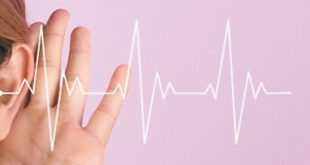Dr. Joseph Freedman MD, MBA


Many cardiac patients suffer with depression, and adults with depression are far more susceptible to develop cardiovascular disorders. A large and growing body of research shows that mental health is associated with risk factors for heart disease before a diagnosis of a mental health disorder and during treatment. These effects can arise both directly, through biological pathways, and indirectly, through risky health behaviors.1
People experiencing depression, anxiety, stress, and even PTSD over a long period of time may experience certain physiologic effects on the body, such as increased cardiac reactivity (e.g., increased heart rate and blood pressure), reduced blood flow to the heart, and heightened levels of cortisol. Over time, these physiologic effects can lead to calcium buildup in the arteries, metabolic disease, and heart disease.1
Evidence shows that mental health disorders—such as depression, anxiety, and PTSD—can develop after cardiac events, including heart failure, stroke, and heart attack.1 These disorders can be brought on after an acute heart disease event from factors including pain, fear of death or disability, and financial problems associated with the event.1
As we age, enjoying time with family and friends and experiencing lasting memories are what we think is supposed to happen, but many times sadness and depression take place in the aging population. Why? Multiple factors can play a role in depression, such as grandchildren and children living far away, Chronic health conditions that arise, busy schedules, missing loved ones that have passed on or feelings of isolation, addictions, or perhaps the worries of retirement finances, to name a few. Many times, depression is a natural state and is short lived, but if depression is chronic, it can lead to debilitating circumstances.
There are neurotransmitters throughout the entire body that send signals to the brain, alerting us instantaneously of depression. Depression is made up of both psychological and physical symptoms. The psychological part creates insomnia, forgetfulness, lethargy, and sadness, while the physical aspect can produce arterial restrictions, a weakened immune system, and shortness of breath.
When depressive disorders are left untreated or undertreated, several areas of the brain like the hippocampus (regulates emotions) and the prefrontal cortex (decision making, planning abilities) shrink causing long-term damage. Overall, the health and wellness of the body and mind are at risk of infection, disease and chronic depressive episodes that can lead to suicidal tendencies, and can exacerbate overall health disorders, including cardiovascular disease.
If you have any cardiac symptoms or struggle with depression, call to make an appointment now.
At Cardiac Care Group, they take your symptoms seriously and are prepared to see you and to discuss your conditions. They specialize in providing a wide range of services that focus on the prevention, prompt diagnosis and state-of-the-art treatment of cardiovascular disease.
Joseph Freedman, M.D., Cardiac Care Group
Dr. Freedman brings many years of experience as a cutting edge cardiologist specializing in the prevention, diagnosis, and treatment of all cardiac disease. He trained at the prestigious Cleveland Clinic, continually ranked #1 in Cardiovascular Care, where he focused on cardiac imaging. He achieved five board certifications in Internal Medicine, Cardiology, Comprehensive Adult ECHO, Nuclear Cardiology and Cardiac CT. During his tenure as the lead noninvasive cardiologist at Florida Medical Center in Ft. Lauderdale, he helped lead the hospital to achieve Level 5 chest pain certification, the highest designation of cardiac excellence.
He has spoken on national health care radio programs and has appeared on local news, highlighting the latest in cardiovascular care. Dr. Freedman prides himself on being an advocate for the patient. Every patient is unique, and he works carefully with leading local and national experts to make sure patients receive the best specialty procedural care possible for that particular case. Dr. Freedman has done research in cardiac MRI studies of the heart, in nuclear scanning, and has participated in the research trials of several leading cholesterol-lowering drugs. Dr. Freedman also has extensive experience in pulmonary hypertension and ran a large clinic in Broward County for these specific and often undiagnosed patients. Dr. Freedman speaks Spanish.
Cardiac Care Group
3208 Chiquita Blvd S., Suite 110, Cape Coral, FL 33914
(239) 574-8463
www.flccg.com
Source:
1. https://www.cdc.gov/heartdisease/mentalhealth.htm
 Southwest Florida's Health and Wellness Magazine Health and Wellness Articles
Southwest Florida's Health and Wellness Magazine Health and Wellness Articles

